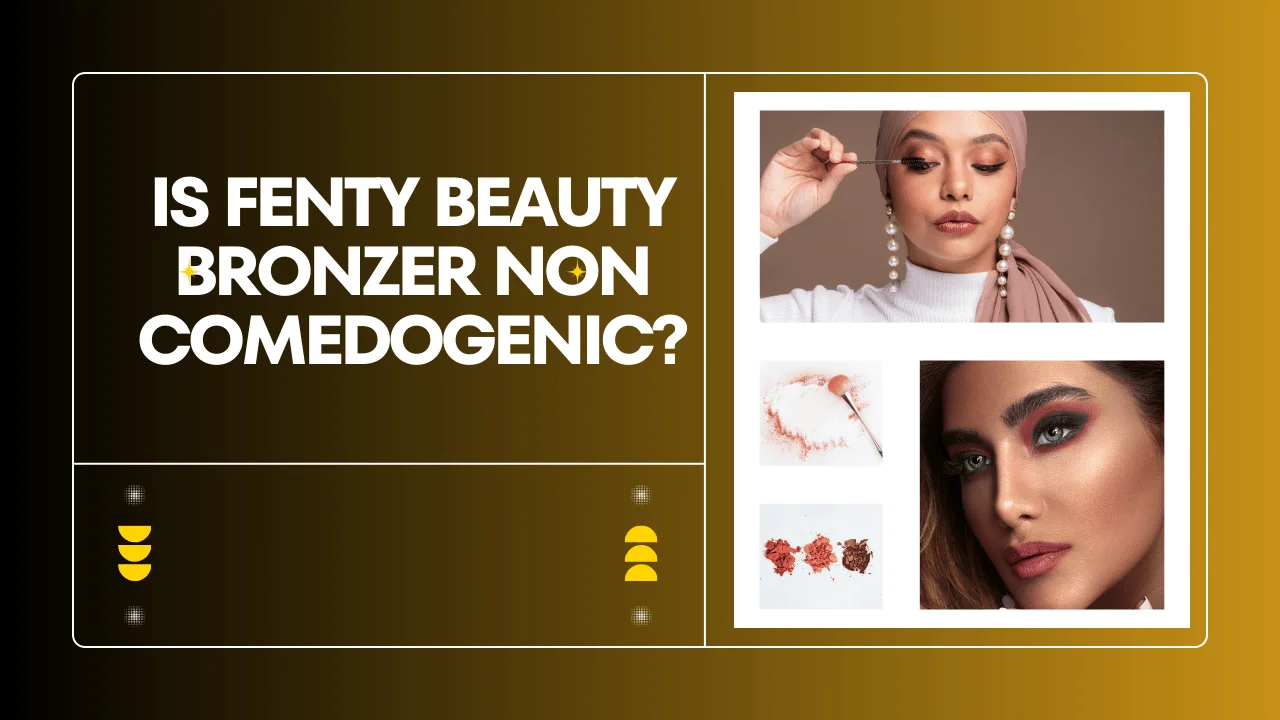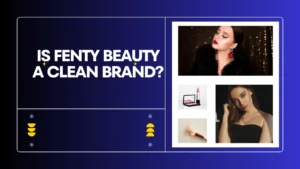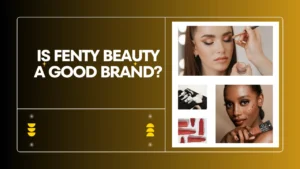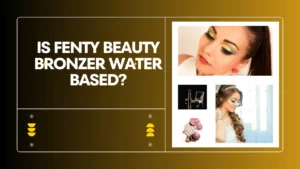Rihanna. The name itself conjures up images of fierce power, undeniable talent, and of course, flawless beauty.
And with Fenty Beauty, her revolutionary makeup line, she’s democratized that very idea. But for those of us constantly battling acne warriors, a crucial question arises: is the coveted Fenty Beauty bronzer truly the key to a sun-kissed glow, without the dreaded breakout brigade joining the party?
Fear not, fellow beauty enthusiasts! This blog post dives deep into the non-comedogenic mystery surrounding Fenty Beauty bronzers. We’ll crack the code on what “non-comedogenic” even means, dissect the ingredients in these popular bronzers, and analyze real user experiences.
We’ll also explore the role of your unique skin chemistry, and even provide some stellar alternatives if Fenty Beauty doesn’t quite fit the bill. So, grab your favorite skincare potion, settle in, and get ready to unlock the secrets to a bronzed and blemish-free you!
Contents
- 1 Understanding “Non-Comedogenic”
- 2 Analyzing Fenty Beauty Bronzer Ingredients
- 3 User Experiences and Reviews
- 4 Individual Skin Variations and Patch Testing
- 5 Alternatives for Acne-Prone Skin
- 6 Conclusion
- 7 FAQ’s
- 7.1 Are Fenty Beauty bronzers truly non-comedogenic?
- 7.2 What are the key ingredients in Fenty Beauty bronzers?
- 7.3 How can I minimize the risk of breakouts when using a new product?
- 7.4 What are some alternatives to Fenty Beauty bronzer for acne-prone skin?
- 7.5 Should I consult a dermatologist before trying a new product?
- 7.6 How often should I exfoliate my skin?
Understanding “Non-Comedogenic”
Let’s break down the beauty jargon. Non-comedogenic simply means a product is less likely to clog pores.
But wait, it’s not a guaranteed passport to clear skin! Factors like your unique skin type, the specific formulation of a product, and even environmental conditions can all influence whether a product, even a non-comedogenic one, might cause a breakout.
That’s why ingredient selection is key. By choosing products with ingredients known to be gentle on the skin, you’re taking a significant step towards a clearer complexion.
Analyzing Fenty Beauty Bronzer Ingredients
Now, let’s dive into the ingredient list of Fenty Beauty bronzers. While the specific formulations may vary, common ingredients include micronized minerals and pigments. These ingredients are generally considered gentle on the skin and less likely to clog pores. However, it’s essential to note that individual skin reactions can vary.
Some individuals may be sensitive to certain ingredients, even those typically considered non-comedogenic. Fenty Beauty has made claims about the non-comedogenic nature of their products. While these claims are promising, it’s always a good idea to patch test any new product, especially if you have sensitive or acne-prone skin.
User Experiences and Reviews
The internet is flooded with glowing reviews from Fenty Beauty fans, including many with acne-prone skin. They rave about the buildable pigmentation, the smooth texture, and the natural-looking finish.
However, it’s important to remember that what works for one person may not work for another. Some users have reported breakouts after using Fenty Beauty products. This highlights the crucial role of individual skin chemistry.
What might be a dream product for one person could be a nightmare for another. It’s always wise to consider your unique skin needs and do your research before incorporating a new product into your routine.
Individual Skin Variations and Patch Testing

While Fenty Beauty bronzers may work wonders for many, it’s essential to remember that beauty is personal. Our skin is as unique as our fingerprints, and what works for one person may not work for another.
Patch testing is a vital step, especially for those with sensitive skin. Apply a small amount of the product to a discreet area of your skin and wait 24-48 hours to see if any adverse reactions occur.
If you have concerns or specific skin conditions, consulting with a dermatologist can provide personalized advice and help you make informed decisions about your skincare routine.
Alternatives for Acne-Prone Skin
If Fenty Beauty bronzers aren’t quite the match for your skin, fear not! There are plenty of other fantastic options available. Mineral-based makeup is often a great choice for acne-prone skin.
These products are typically lightweight, non-comedogenic, and can provide excellent coverage without clogging pores. Oil-free and water-based formulas are also worth considering, as they can help to keep your skin hydrated without adding excess oil. And don’t forget about a non-comedogenic primer.
A good primer can help to create a smooth canvas for your makeup and can also help to minimize the appearance of pores.
Conclusion
So, are Fenty Beauty bronzers a safe bet for acne-prone skin? The answer, as with many beauty questions, is it depends.
While the brand has gained a reputation for inclusivity and quality, it’s essential to remember that individual skin chemistry plays a significant role in product reactions. While many users with acne-prone skin have had positive experiences, others have reported breakouts.
The bottom line? Do your research. Read reviews, consider your unique skin needs, and, most importantly, patch test any new product before full application. If you have concerns or specific skin conditions, consulting with a dermatologist can provide personalized advice and help you make informed decisions about your skincare routine.
Remember, the journey to clear, healthy skin is personal, so embrace what works for you and don’t be afraid to experiment.
FAQ’s
Are Fenty Beauty bronzers truly non-comedogenic?
While Fenty Beauty has made claims about the non-comedogenic nature of their products, individual skin reactions can vary. Some users with acne-prone skin have reported positive experiences, while others have experienced breakouts. It’s essential to consider your unique skin chemistry and patch test any new product before full application.
What are the key ingredients in Fenty Beauty bronzers?
Common ingredients in Fenty Beauty bronzers include micronized minerals and pigments, which are generally considered gentle on the skin and less likely to clog pores. However, individual sensitivities may vary.
How can I minimize the risk of breakouts when using a new product?
To minimize the risk of breakouts, consider the following tips:
Patch test: Apply a small amount of the product to a discreet area of your skin and wait 24-48 hours to see if any adverse reactions occur.
Choose non-comedogenic products: Opt for products labeled as non-comedogenic, as they are less likely to clog pores.
Keep your skin clean: Wash your face twice a day with a gentle cleanser to remove dirt, oil, and makeup.
Moisturize regularly: Keep your skin hydrated to prevent dryness and irritation.
What are some alternatives to Fenty Beauty bronzer for acne-prone skin?
If Fenty Beauty bronzers don’t work for your skin, consider these alternatives:
Mineral-based makeup: These products are often lightweight, non-comedogenic, and can provide excellent coverage without clogging pores.
Oil-free and water-based formulas: These formulations can help to keep your skin hydrated without adding excess oil.
Non-comedogenic primers: A good primer can help to create a smooth canvas for your makeup and can also help to minimize the appearance of pores.
Should I consult a dermatologist before trying a new product?
If you have severe acne or other skin concerns, it’s always a good idea to consult with a dermatologist. They can provide personalized advice and recommend products that are suitable for your specific skin type.
How often should I exfoliate my skin?
Exfoliating your skin can help to remove dead skin cells and unclog pores. However, over-exfoliating can irritate your skin. Aim to exfoliate 2-3 times per week, using a gentle exfoliator.








